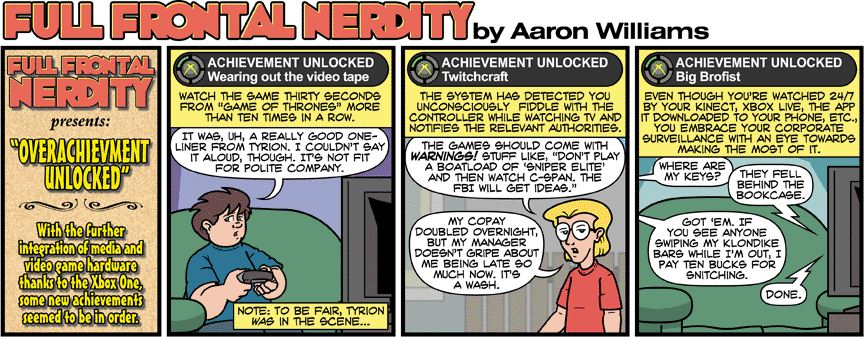No-one can deny the huge impact of the internet.
The information super highway has changed how we work, rest, play and interact.
As discussed in my last blog about 3D printed firearms, the law has often struggled to keep pace with new technology so with the recent announcements for firstly Google Glass & XBox One:
Wireless devices are everywhere, for many involved in technology industries a Smartphone is the tool that allows them to do their job, stay in touch and organise their lives, and our activity online controls the content that we see in adverts, the suggested items we see on sites like Amazon, iTunes, YouTube, NetFlix etc. But should this information, which influences what we see everyday be more private?
Debates about privacy, especially in the US are nothing new; Big Brother is a phrase that entered the language over 60 years ago with Orwell's distopian vision in 1984, and with the steady growth of CCTV cameras, and government security services seeking more information about what we do online that debate is unlikely to go away anytime soon, but while we fight government the advent of social media has tended to see us plastering information across the internet and not always to the good. So with this new technology coming is should we be worried? As with anything new it's always right to ask questions, while Governments may speak about the greater good, commercial enterprises are generally very self interested. The two companies involved in these ground breaking pieces of technology have been in court before Xbox, while no longer part of Microsoft, may still be tainted by the company's reputation and lengthy anti-trust cases. Google by comparison has already been fined and is being closely scrutinised by watchdogs about their behaviour surrounding privacy issues, and with debate still raging in the UK since the Leveson Inquiry we see these devices arriving at a particularly sensitive time in our collective consciousness.
It is true that as the pace of our lives increase, as the amount of information we can access increases and technology presents us with the convenience of greater inter-connectivity we are and will likely be more vulnerable. Identity theft, something pretty much unheard of outside of Spy Thrillers less than 20 years ago is now something that worries some of us everytime we walk up to an ATM.
It is also true, from the perspective of someone who has worked in both financial services and online gaming, that while Data Protection is important in the majority of cases corporate entities aren't looking to use the information maliciously (in the same way that just because a chef has a razor sharp knife, it doesn't mean they necessarily want to stab you).
Now, something to think about.
In a recent TED talk Juan Enriquez spoke about how now our online life was a permanent as a tattoo.
Information such as addresses, and phone numbers are things we have shared for years and as easily reached as the nearest copy of the Yellow or White pages.
If the information about our choices is actually resulting in us getting stuff we want or need is that a bad thing?
While no one wants to be judged for what they did as a child or 20 years ago, the fact that we may no longer be able to hide from the truth of our lives may result in an increase in social debate and acceptance; that we have to put away the dream that our heroes and rolemodels should be blemish free and virginal, and accept that we are all human after all.
It may also mean that people think a little more before they act.
Whether for good or ill it looks like the future will place us all under closer scrutiny.
Tinfoil hat anyone? 

